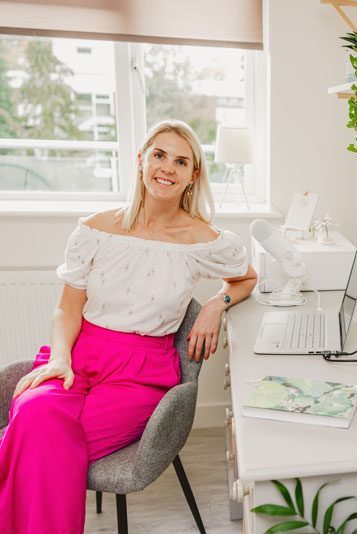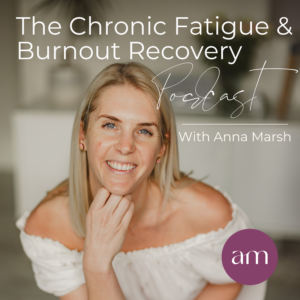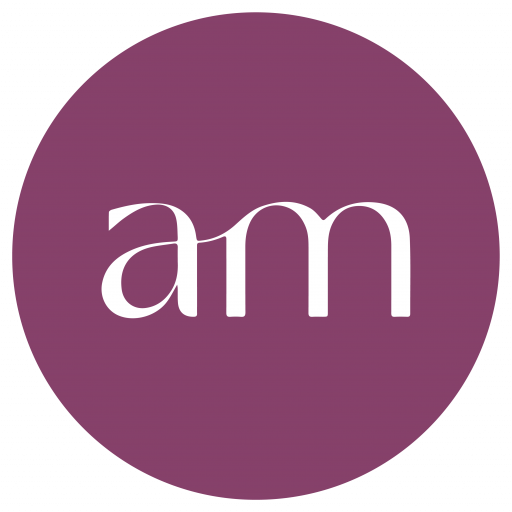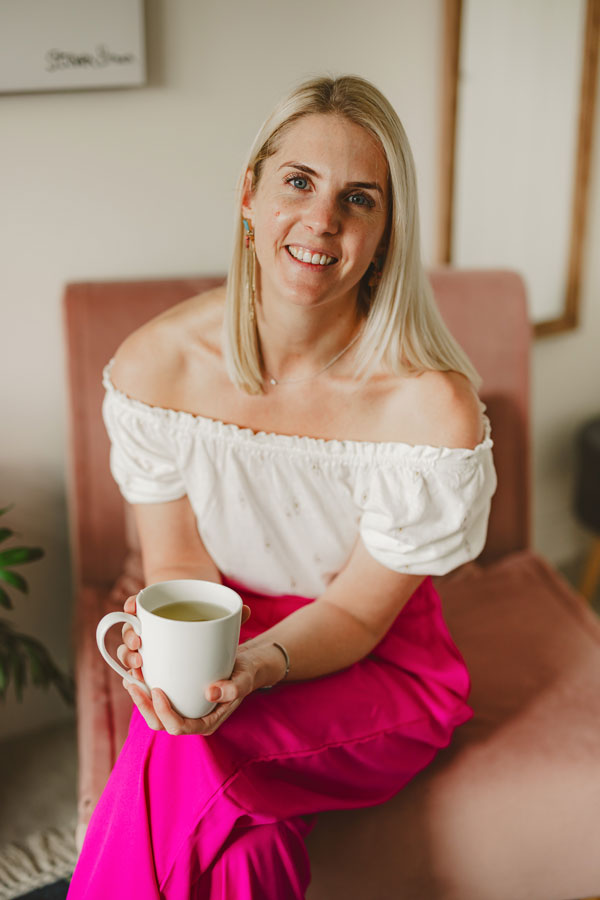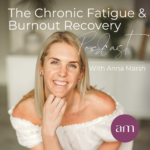
Show Notes
Who doesn’t love a recovery story? In this episode, Anna talks from the heart and shares her journey recovering from Chronic Fatigue Syndrome and Mold Illness. She shares both her personal and professional learnings that have shaped the framework she uses in her practice to help others make their own recoveries.
Useful links:
Website: https://annamarsh.co.uk/
Instagram: https://www.instagram.com/anna_marsh_nutrition/
Fatigue Recovery Quiz: https://app.annamarsh.co.uk/quiz
MY FATIGUE RECOVERY STORY
Hello, and welcome back to the fatigue and burnout recovery podcast. I am your host, Anna Marsh. In this episode, I’m going to share my fatigue recovery story. And just full disclosure, I haven’t planned anything; I will talk freely and hopefully share from the heart.
Before I go into everything, I guess I wanted to say that often, for me personally, and maybe for many people as well, it can feel really self-indulgent, having this platform just to talk about yourself. So in some ways, I feel it can be quite cathartic to share one story. At the same time, there’s a lot of self-judgment thinking; or who would be interested in this, and is this just a self-indulgent way to express myself? So I’m just going to go for it, I think. And what I would say is that every single person’s story is different.
I know in my own recovery, I would read stories, maybe from other people, and listen to other recovery stories. I would think maybe there are certain stories that really resonated with me. And then there are parts of stories that maybe resonated with me.
Then there are other stories where I used to think, well, that person is 10 years younger than me, or that person had post-viral fatigue, and I didn’t have post-viral fatigue, so it’s not relevant to me.
I would encourage you if you’re listening to this and you’re committed to listening to the rest of this episode, to notice how you respond to the content and take what serves you, discard what doesn’t, and come in with an element of curiosity, because there may be some lessons and insights which will help you reflect on your own story.
And there could be something in here today that helps you move the needle forward with your own fatigue recovery journey. So from my heart to yours, I just want to say that I really hope there is something here today that can be of value to you. And if not, hopefully, there will be more value in future episodes.
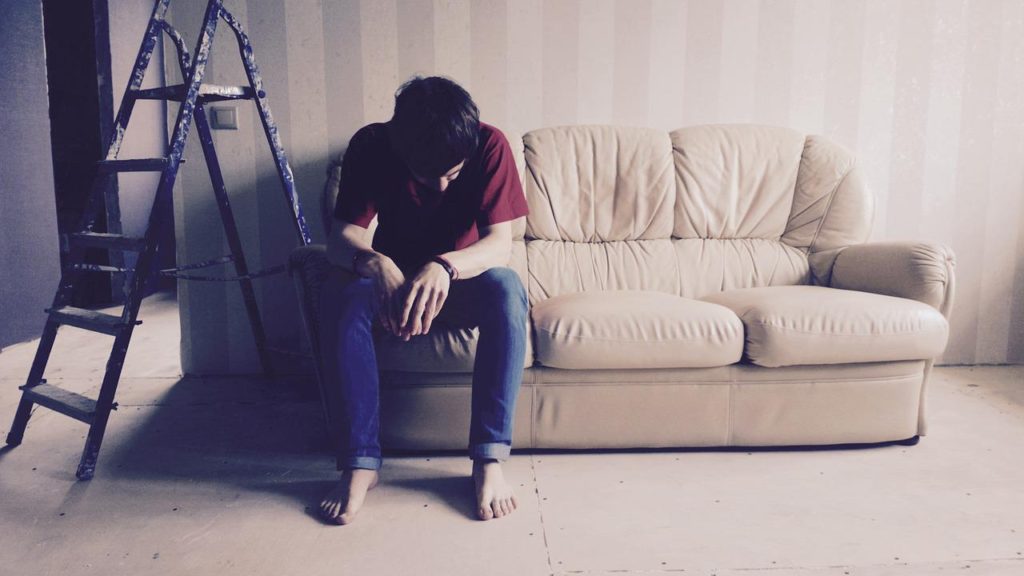
So the first thing that I guess I wanted to say and express was that I had my first fatigue experience quite young when I was nine years old. I had been doing my homework at the dining room table on a Sunday night. And then I lay down on the floor, and I just said, It’s too much, I can’t, I’m too tired.
It wasn’t that I was trying to get out of doing my homework like most nine-year-olds probably would be on a Sunday night. But there was just a feeling of lethargy and exhaustion in my body, which I suspect at the time was emotional. To a certain extent, obviously, at the time, I didn’t know that there was a lot of family stress going on. My parents were separated and getting divorced.
There were some other dynamics going on in the home, which made life a little bit stressful. There was just a lot going on for a nine-year-old girl who maybe didn’t know how to manage the emotional enormity of the situation. And nobody knew what was wrong with me. I took a month off school and went to various different doctors. I was eventually diagnosed, rightly or wrongly, I’ll never know, with nephritis, which is inflammation of the kidneys.
I think I was put on a lot of antibiotics and medications, I had to take time out of school and rest. Eventually, I was building up my school hours. So I would go for the morning. Then I would go until lunchtime and eventually stay for the full school day. And I wasn’t allowed to do any sports or anything like that.
So I did sort of recover over the course of six months, I had a relapse a few months later and just went through the same process again of resting and then building myself back up. And then all was well for a really long time. I was a very normal, maybe not even normal, probably very high achieving child, very a type personality, academic, high achieving in school, got good grades, all of that.
I was never really good at sports, but I enjoyed exercise, swimming and running, and aerobics classes. That’s what fueled my interest in my first degree, Human Kinetics and Ergonomics. I had always had an interest in nutrition, because when I was diagnosed with nephritis, I was given some really bad advice, which was to eat lots of carbohydrates to increase my energy levels.

As you can imagine, the increase in carbohydrates ended up being donuts and ice cream, and packets of crisps. It wasn’t very good for me. I probably gained about two stones over the course of a few months and went straight into puberty at nine years old. So there was also a lot of body image stuff, shall we say, thrown in the mix there. My body changed very quickly, it felt very out of control at a time in my life, where there was a lot of emotional change happening in the household.
I think I just wanted to lose weight and be a normal child. And because of that, I developed an interest in nutrition. So the plan was always from a young age to study nutrition. But that wasn’t available in the hometown where I lived. My parents worked for the local university, and education was essentially free, which was a huge privilege. Therefore, it made sense for me to go to the local university and study Human Kinetics and Ergonomics, Sports Science, and Biochemistry, so that I can set up with the foundations.
So should I later want to do further nutrition studies? So that’s what I did, had a very typical university lifestyle, lots of partying, lots of late night drinking, and not eating very well, but still very much interested in sport and still doing very well academically. But by the time those university years came to an end, I knew that nutrition was still my passion.
And the opportunities available in South Africa at the time were limited. I was off, I was busy completing my honors project. I was struck down with appendicitis. And I was bed bound in recovery after having my appendix removed. And so lying in bed, unable to do anything, or go anywhere.
I began thinking about the future and what I wanted to do next. I got on Google, and I started researching. I started to research nutrition courses in the UK. And I found the course that I really wanted to do, I just read the prospectus. I was like, this is everything that I’ve wanted to study my whole entire life. And little did I know at the time, it was based on functional medicine, or the functional medicine model.
So I’m very fortunate. My mum is English, my dad is South African, and I have a British passport. So the idea of moving to England to study wasn’t as daunting as it would maybe be for someone else. So I had a call with the university. I made plans to start the course online distance learning from home for a year in South Africa. And then the year after that moved to the UK to complete the practical elements, the elements that couldn’t be done via distance learning.
This was before zoom, and all the fantastic technology we have today. So this was 2007. I began that degree, quite a while ago now. I had to travel to the UK to do certain aspects. They used to post me DVDs of the content all the way to South Africa, because there was no online learning platform at that point in time.
Anyway, slight digression. So I moved to the UK in 2008. When you’re young, you just make decisions, and you do things because you don’t think so much about the consequences. I think that maybe in some ways, that’s a good thing. Because you think more about what can go right as opposed to what can go wrong, and therefore you take risks and you take leaps of faith.
And that was definitely what I had done. But when I landed in the UK, there was also the reality of just finding somewhere to live or finding a job. The plan was that I would work as a personal trainer in a gym so that I had the flexibility to work and earn a living to support myself but then the flexible time.
If I needed to take a day off to attend a training or do coursework and I could study, in between and the hours when I wasn’t working with clients, but it was a very full-on job because you work first thing in the morning sometimes until the last thing at night. So some days, I would leave the house at 5:30 in the morning, and I would get back at half past 9:10. And just sort of fall asleep, wake up and do it all over again.
So that was a huge strain that was starting to take its toll on my body. In addition to that, it’s just stressful. I think living in a foreign country, which is culturally different, you don’t have the support network or connections you might have in your own country.
Then the financial pressures of running your own business in a country where you don’t have the support network, and you don’t have the connections, and you’re trying to study, all on top of that. So there was a lot going on. And the signs definitely started to show in my body, and had a lot of IBS-type symptoms.
I think given all the antibiotics I took due to the supposed nephritis diagnosis as a child, my gut has always probably been a bit of a weak point. And there are a lot of IBS symptoms, brain fog, hormonal imbalances, my skin, which has never, I’ve never had bad skin, but my skin was just starting to break out a little bit more, and just extreme fatigue. It wasn’t enough, I think, to be called chronic fatigue syndrome at that point in time.
But I was tired. I was very, very tired. Life was hard. And it was a slog. But fortunately, I was studying health, I was studying nutrition, and I was learning about functional medicine, even though I didn’t know it at the time.
I was able to start to do things to support my body, I was able to balance my blood sugar, I was able to take supplements to support my digestion, and I used herbs to support my adrenal glands. I worked on lifestyle components. So I found a place to live where I felt that I could be more settled and more rested. And as time went on, I built those important support connections that we all as human beings need.
And it did take some time. It took a good, I’m just thinking it was sort of 2009, 2008, 2009 through probably until 2011. So good two or three years to really find my feet and cultivate a good stable sense of energy and well-being again.
That also came hand in hand with me discovering CrossFit in the very early days before CrossFit was so mainstream. And I loved it, it really appealed to my competitive nature. I would push myself very hard physically.
And it was fantastic. From the community aspect. I made so many friends and connections and I really felt like I was part of something, which is something very important that had been missing when I first moved to London. I think it was also really, really intense. I would frequently get a bit run down and get some colds and flus, I think my immune system was still a little bit compromised at the time.
I remember I was just about to do my first big CrossFit competition, and I had been training so hard for this competition. And then, the week before, I was just struck down with the most awful flu. And honestly, I don’t think I have been that ill since that day, it was a proper flu with body pain, and fever and fatigue, and all of those things that we would associate with the full-blown flu.
Obviously, it’s not nice to have the flu, it’s not nice to have those experiences. But actually, the ability of the body to generate a strong fever is a sign of a healthy and robust immune system. So there’s a reason why I share this is because I had that flu, or I got that flu on a Sunday, and I was due to compete by the Saturday.
And by Saturday, I was feeling okay, but I wasn’t fully recovered. I pushed my body to complete the competition because I had been training so hard for it. I didn’t want to not compete. But in hindsight, which is always 2020, I think back now, and I think I probably was like a small beginning of the end because I think I pushed my body too hard when it wasn’t ready.
I remember it taking quite a few weeks after that competition for me to feel like I could train again and like I could exercise again. Then from that point in time, I’d say the wheels started to come off a little bit, and I started to develop some niggling injuries. By the end of that year, I remember taking time off for Christmas, and I had mouth ulcers and aches and pains in my body, and I just wasn’t feeling very good. So there were those niggling symptoms creeping back in.
And it was nothing major, nothing. When you’re busy, young, and doing things, you just sweep these things under the rug, and you keep on going. And it wasn’t something that was impacting my life in a huge way.
So I just kept on going. Then I was offered the opportunity to do my master’s degree in personalized nutrition. I took that opportunity up. And so again, I was working, and I was studying. And it was things that I enjoyed, but it was still a lot to be taking on.

Then additionally, I was training very hard. So that went on for a period of time, and I met my now husband Ben, and we decided that we wanted to move to where I live now, which is the southwest coast of England. And 2014, we decided to make the move, I had just finished my master’s.
I had been working on taking my business online to prepare for the move because prior to that, I’d had a very physical in-person practice. Now I needed to take things online so that I would still have a job as we moved. So that all happened. And in some ways, that was a really great move. I love being on the southwest coast, I love living by the beach, I was never really into the big city.
I think that was something that was also quite a lot of stress and strain on my nervous system. But at the same time, there were a lot of additional challenges that came with taking my business online, there was new technology that I needed to learn, and there’s this idea, your work is always just there on your laptop or your phone. And it’s very easy to be available to people all the time.
I had invested all of my savings in working with a business mentor because I realized I didn’t know what I was doing. I needed help. So although that was a fantastic investment, it really helped me grow my business and achieve a lot of business success. There was also a lot of pressure to make things work. And I was learning so much so quickly growing so much so quickly.
And it was amazing. But at the same time, it was also just a lot. That was probably the trend for the next couple of years. So at that point in time, because of my background in fitness, I started an online weight loss program. And the program was really successful.
I think in the best year in business, we turned over 180,000 pounds. That was with a small team. So there I had an assistant, full time assistant and sales representative who worked for me, I had a coach who worked with me, I had a you know, various contractors, designers, someone who helped me with Facebook ads, various bits and bobs.
And it was also investing a lot of the money that was being made back into the business and also into my own education and skill set. So I was running this business and traveling to America to do my functional medicine training. Also, running retreats, traveling to Italy and Bali, and upholding the business day to day was also a lot of pressure.
And so there was just so much going on. I think even though the business was earning good money and felt like just as soon as the money was coming in, it was also going out. Therefore I constantly felt financial scarcity.
There was always pressure every month to make sure we onboard enough new clients to keep the machine keep feeding the machine of the business. I think that was a really big thing that started to take its toll on my body. At the same time as traveling internationally with jet lag, I was pushing myself very hard in the gym.
And there was an emotional component to running the business as well. I was working with women who wanted to lose weight, a lot of them are really struggling with their bodies their body image and as someone who is very highly sensitive and caring, and it was a lot to hold those emotional experiences of others. Because that was actually something that I still needed to learn to do for myself.
Often, when we run our own business, it shows us the lessons we need to learn. I had a lot of lessons I needed to learn around. I still do have a lot of lessons I need to learn about pleasing people, setting good boundaries, work-life balance, and taking on the emotional energies of other people.
So all those things were also invisible stresses the inability to set boundaries and constantly trying to help others at the expense of my own self-care. And people-pleasing, poor boundaries, all of that, that was something that was silently also creating wear and tear on my system. So I had the financial stress, those hidden emotional stresses, the stress of travel and disruption to my circadian rhythms, imbalances that were probably niggling away at my body from before, like gut imbalances.
Then the stress of just pushing myself hard in the gym and training very hard. And throughout this whole time I ate well, so it wasn’t like I had a bad diet, I was definitely eating well to support my body. When I wasn’t straddling time zones, I was good at making my sleep a priority.
I slept well. I was into yoga, I was into meditation. And I found Joe Dispenza in 2017. And I love Joe Dispenza. And I would do his hour-long meditations. I attended his three day retreat.
So it wasn’t like I wasn’t taking care of myself. There was a lot that I was doing to support my body. But there was also a lot of stress on my body. And something that I also probably now only realize in hindsight, is I think, when we first moved down to poor Bournemouth in 2014, we temporarily lived in a home, which I think possibly had mold. And it’s actually from that point in time, that I started to get these little niggles of fatigue, and feeling a little bit more flu, like after training a little bit too hard.
I’ll never know for sure. But I wonder if I had put it down to the stress of everything going on at the time. But I wonder if that’s when I had mold exposure, which also had a bout of some sort of gastric flu about the same time. Then it was my whole system, I like to think of it as circling the drain.
So my system began to circle the drain from that point onwards, and I wasn’t ignoring my body completely. I did various testing, took supplements, and working on supporting my gut. But what I didn’t have at the time was a framework for really understanding what was going on.
I’ll talk about this framework in more detail in future episodes. And what I know now from what I say with my clients is that when someone experiences chronic fatigue and burnout, it’s usually because the system is being worn down over time. There’s often one big thing, which is the straw that breaks the camel’s back, but not always.
Often, it’s a collection of things. This collection of things is essentially what I’m sharing with my story as I share it with you. So you can understand my unique connection or collection of things. But your collection may look totally different. Once we’ve got these sorts of different things which are wearing down the system over time, it’s like dominoes.
So different body systems begin to become dysfunctional because it’s trying to make adjustments so that you can continue going so that you can cope, and so that you can survive. And so that’s where these little clues come in, like the digestive imbalances, the hormone imbalances, the immune system niggles, they’re all just little signs, which are showing you that your body needs some attention and care. Unfortunately, I couldn’t see the bigger picture of all of the loads on my body.
Therefore I was just going in at the sort of surface level and thinking, Oh, well, I’ll fix my gut, or I’ll take some supplements for my adrenal glands. Instead of thinking, Whoa, there’s a lot of pressure on me here. What do I need to change within myself?
And what do I need to change in terms of lifestyle and business that will really support my body? I just tried to put bandaids or plasters over the wounds instead of really getting to the bottom of what was going on. So this pattern continued for a number of years.
Then I remember in 2016, it had been a really big year for me. I had gotten married, I had done various international travel, and Ben and I were in the process of buying our first flat. I just got back from a trip to Japan.
So lots of jetlags. I just never felt the same after that trip. I started to just feel really fatigued, and foggy, and just demotivated, which wasn’t like me at all, I was a very high energy driven person, very focused, and then just didn’t have that anymore.

But it wasn’t that bad. It’s just like, waxed and waned and waxed and waned, and I’d go back to the gym, take some time off, or do too much. I’d feel really foggy and inflamed, but then I’d rest a bit, and it will be okay for a bit.
So I was just keeping on going, but never taking that big step back to see the bigger picture and say, what is really going on here? I thought I had it all sorted, I was eating well, I was sleeping well, and I was doing loads of meditation and yoga, but just nothing seemed to be giving me the real traction that I needed. So that was 2016.
This pattern continued through 2017 and 2018. Each year, just getting back a little bit worse and a little bit worse. Then eventually, at the beginning of 2019, I went to Sri Lanka, I took a month out of my business, which was a really big deal for me.
I spent a month in Sri Lanka doing my yoga teacher training. That was an incredible experience I had, I was mindful of this tendency towards fatigue, but actually taking the month out being in the sunshine, the fresh air, meeting wonderful people, and just doing yoga was really good for me. My diets weren’t very good because of what was available at the time.
My sleep wasn’t very good, I think because of my diet. But otherwise, the experience was really positive. But when I came back, and then I almost felt like I’ve taken all of this timeout, and I really need to hit the ground running, and do everything and get back into the business and start earning money again, then that’s when the wheels just started to fall off.
I just couldn’t seem to cope with reentering my life as it was. Eventually, that’s when I went to the doctor, I had the symptoms of chronic fatigue syndrome printed out from the NHS website. I knew it was a new hat, and I had pretty much all of them.
I just didn’t know what to do. I just felt like I needed some help. And being trained in functional medicine and nutritional therapy. I did feel a little bit skeptical about going to the doctor and what they could do to help me, but it was also really scary to be experiencing what I was experiencing and not really know what to do and where to turn because I felt like I was doing so much or really just supporting my body.
And so went to the doctor ugly cried in the doctor’s office. She was very sweet. She said are you experiencing a bit of stress right now? And I was like, No, I’m not stressed. Classic.
You know, I was completely disconnected from what was really going on. I was very stressed, and obviously, experiencing that experience is inherently stressful. Anyway, the doctor ran some tests. And this will be very familiar to all of you, which is pretty much normal. They would like one or two markers that were off, I think maybe like my neutrophils or white blood cells, one of the full blood count markers.
Then just to come back in six to eight weeks and retested, everything was fine. At that point in time, I almost jumped ship on the diagnosis process because I think when you’re overwhelmed with what’s happening to your body, you have to show up at appointments and advocate for yourself to get the appointments and get tested. I just felt like I didn’t need to know that this is a thing or that I have this thing.
I don’t need this diagnosis to begin to move forward with my health. So I decided to work with a contact I met through my functional medicine training. I had developed a friendship with a wonderful woman, Dr. Lacey Chittle, who had an autoimmune condition and fatigue associated with that autoimmune condition.
And she was thriving. So I reached out to her and said, I think I need your help. So we began to work together. And the work that we did together was invaluable. She really just helped me with a lot of my blind spots.
So although I was trained in Functional Medicine, I was trained as a nutritional therapist, and I had more than a decade of experience at this point in time. We all have blind spots, we all have the things that we can’t see for ourselves, and it takes somebody outside of us to help us see those things, I learned so much from her professionally because different practitioners have different levels of experience in different areas and different skill sets. And it was really expensive for me, not just personally in my fatigue recovery but in my own sort of professional growth as a professional.
So that first year from 2019 to 2020, I actually did really, really well. I was progressing, and things were heading in the right direction. But at the end of the year, for a short period of time, about two or three months, I ended up living in my mom’s flat while she was back in South Africa. And at that point in time, I didn’t know it at the time, I think I had another mold exposure.


